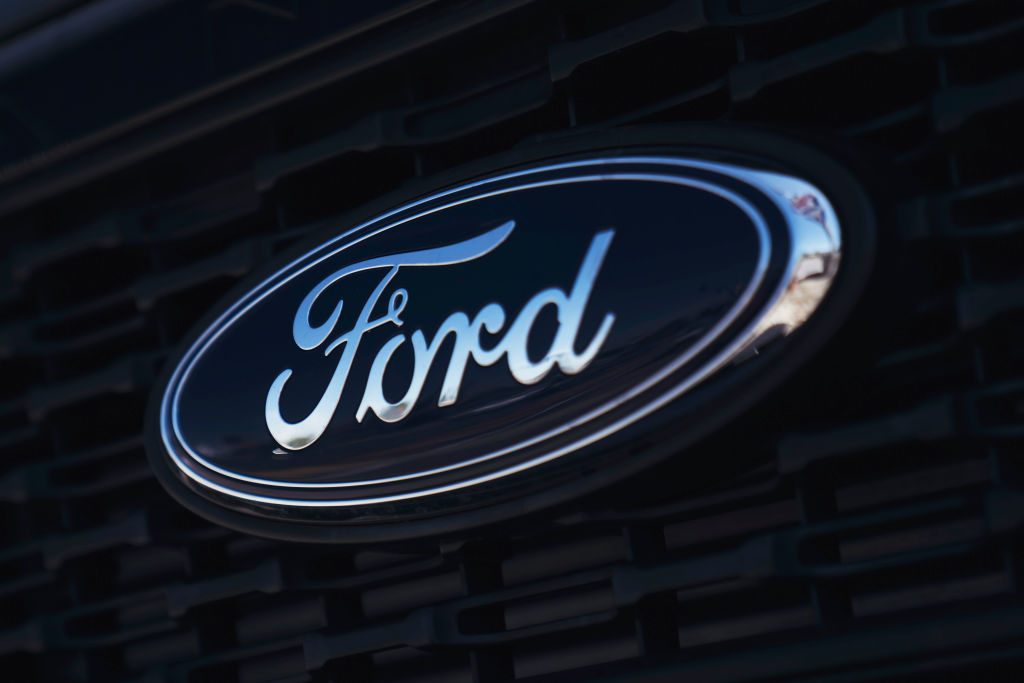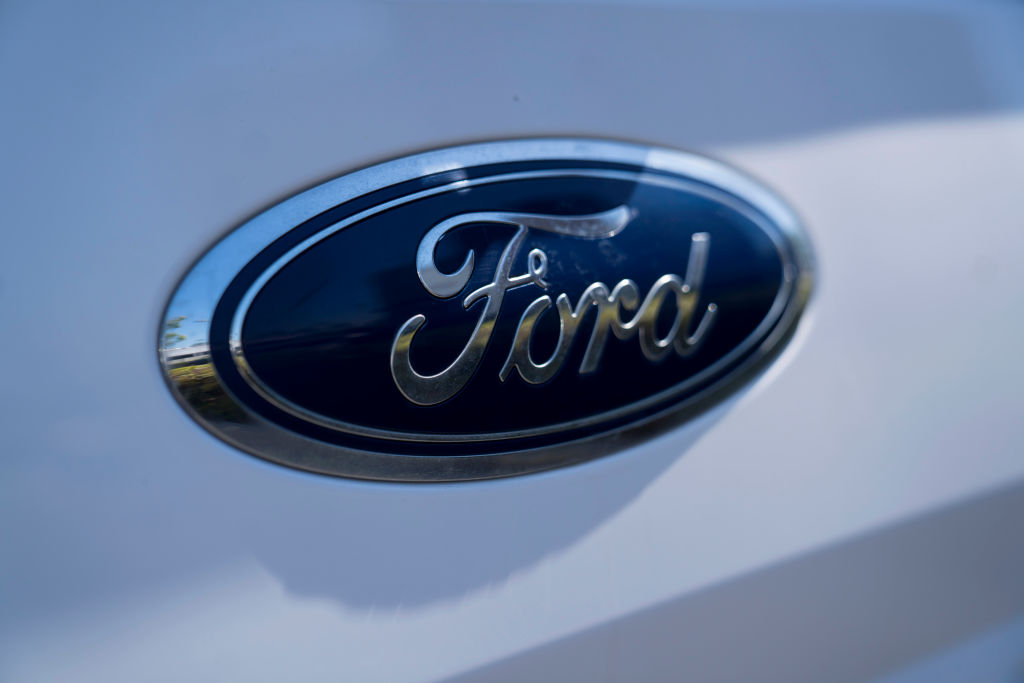The Value of Free Maintenance Offers on New Cars
Most maintenance plans for nonluxury brands are more sizzle than steak. New cars don't need much upkeep.

Profit and prosper with the best of Kiplinger's advice on investing, taxes, retirement, personal finance and much more. Delivered daily. Enter your email in the box and click Sign Me Up.
You are now subscribed
Your newsletter sign-up was successful
Want to add more newsletters?

Delivered daily
Kiplinger Today
Profit and prosper with the best of Kiplinger's advice on investing, taxes, retirement, personal finance and much more delivered daily. Smart money moves start here.

Sent five days a week
Kiplinger A Step Ahead
Get practical help to make better financial decisions in your everyday life, from spending to savings on top deals.

Delivered daily
Kiplinger Closing Bell
Get today's biggest financial and investing headlines delivered to your inbox every day the U.S. stock market is open.

Sent twice a week
Kiplinger Adviser Intel
Financial pros across the country share best practices and fresh tactics to preserve and grow your wealth.

Delivered weekly
Kiplinger Tax Tips
Trim your federal and state tax bills with practical tax-planning and tax-cutting strategies.

Sent twice a week
Kiplinger Retirement Tips
Your twice-a-week guide to planning and enjoying a financially secure and richly rewarding retirement

Sent bimonthly.
Kiplinger Adviser Angle
Insights for advisers, wealth managers and other financial professionals.

Sent twice a week
Kiplinger Investing Weekly
Your twice-a-week roundup of promising stocks, funds, companies and industries you should consider, ones you should avoid, and why.

Sent weekly for six weeks
Kiplinger Invest for Retirement
Your step-by-step six-part series on how to invest for retirement, from devising a successful strategy to exactly which investments to choose.
General Motors’ announcement last summer that it would offer two years of free maintenance for its 2014 models expanded the field of brands that add regular maintenance to the factory warranty. The word free carries serious marketing clout. But if you’re cross-shopping models from different brands, how much should a free maintenance program factor into your decision?
That depends on the details of each plan. Most maintenance plans for nonluxury brands are more sizzle than steak: They cover most of your car’s maintenance needs for a while. But in the first couple of years, new cars don’t need much upkeep—generally oil changes and tire rotations. That may be worth only a few hundred dollars. Free maintenance on a luxury brand, however, can add up to serious bucks.
Mainstream makes. The promise of free service on a Toyota, Volkswagen or Chevrolet might tempt you away from a Honda or Ford, which don’t offer maintenance programs. But a rebate or bigger discount on a competing brand that doesn’t offer free service might more than make up for your maintenance “savings.” And those savings may not add up to much anyway. For example, Toyota offers free maintenance on its vehicles (including Scion models but not Lexus) for two years or 25,000 miles, whichever comes first. For the Toyota Camry, the service guide recommends an oil change every 10,000 miles, tire rotations every 5,000 miles and a multiple-point inspection at each service interval. Over 25,000 miles, covered maintenance would cost just over $300, according to Vincentric, an automotive-data firm.
From just $107.88 $24.99 for Kiplinger Personal Finance
Become a smarter, better informed investor. Subscribe from just $107.88 $24.99, plus get up to 4 Special Issues

Sign up for Kiplinger’s Free Newsletters
Profit and prosper with the best of expert advice on investing, taxes, retirement, personal finance and more - straight to your e-mail.
Profit and prosper with the best of expert advice - straight to your e-mail.
The other programs from nonluxury carmakers have similar terms. GM’s will cover 2014 Chevrolet, Buick and GMC models for two years or 24,000 miles. Volkswagen started offering free maintenance for three years or 36,000 miles on 2009 models, but soon after GM announced its program, Volkswagen cut its free maintenance for 2014 models to two years or 24,000 miles.
Luxury brands. The value equation shifts for luxury buyers. Service costs add up fast—oil changes can run $100—and the programs tend to be more comprehensive and cover more miles. “There’s more benefit for a luxury buyer,” says Alec Gutierrez, senior analyst for Kelley Blue Book. If you’re cross-shopping, say, an Audi or Mercedes-Benz without free maintenance with a BMW that has free service, he says, “BMW’s plan could definitely sway you.”
BMW’s four-year or 50,000-mile maintenance plan includes not only service visits but also replacement of wear-and-tear items, such as wiper blades and brake pads and discs (likely needed around year three or four). Over 50,000 miles, maintenance on a 5-series sedan adds up to $2,000, according to Vincentric. BMW’s sister brand, Mini, offers the same coverage on its cars for three years or 36,000 miles. Hyundai has similar coverage on its top-of-the-line Equus for five years or 60,000 miles. Even with the best programs, you’re on your own if you need new tires.
Among other luxury makes, Cadillac covers basic maintenance (no wear-and-tear items) for four years or 50,000 miles. Current Lincoln models have the same coverage, but Lincoln will cut the offer to two years or 24,000 miles for its 2014 vehicles. Volvo covers three years or 36,000 miles, and Jaguar covers only the XK, for four years or 50,000 miles.
The best way to shop for new-car values is to compare long-term ownership costs. You can find Vincentric’s five-year ownership-cost estimates for hundreds of models at www.nadaguides.com/cars/cost-to-own. The value of free programs will be reflected in the overall maintenance cost.
Ask Jessica a question at janderson@kiplinger.com, or follow her on Facebook or Twitter at jandersondrives.
Profit and prosper with the best of Kiplinger's advice on investing, taxes, retirement, personal finance and much more. Delivered daily. Enter your email in the box and click Sign Me Up.

-
 Dow Leads in Mixed Session on Amgen Earnings: Stock Market Today
Dow Leads in Mixed Session on Amgen Earnings: Stock Market TodayThe rest of Wall Street struggled as Advanced Micro Devices earnings caused a chip-stock sell-off.
-
 How to Watch the 2026 Winter Olympics Without Overpaying
How to Watch the 2026 Winter Olympics Without OverpayingHere’s how to stream the 2026 Winter Olympics live, including low-cost viewing options, Peacock access and ways to catch your favorite athletes and events from anywhere.
-
 Here’s How to Stream the Super Bowl for Less
Here’s How to Stream the Super Bowl for LessWe'll show you the least expensive ways to stream football's biggest event.
-
 10 Things You Should Know About Buying a Car Today, Even if You've Bought Before
10 Things You Should Know About Buying a Car Today, Even if You've Bought BeforeIf buying a car is on your to-do list, and it's been a while since you went shopping for a new one, this guide will help avoid any nasty shocks in the showroom.
-
 Get the Best Car Deal in Retirement: Here's the Trick
Get the Best Car Deal in Retirement: Here's the TrickPlanning on shopping for a new car this Labor Day weekend? Here’s how to haggle for a better price, even though you're retired.
-
 How Much Will Car Prices Go Up With Tariffs?
How Much Will Car Prices Go Up With Tariffs?Tariffs could drive car prices up even higher, for new and used cars, as well as for American brands.
-
 Ford Recalls 45,000 Cars Over Faulty Door Latches
Ford Recalls 45,000 Cars Over Faulty Door LatchesThe Ford recall follows its 2020 recall for the same issue. Here's what to know.
-
 UAW, Ford Reach Tentative Deal As GM, Stellantis Strike Continues
UAW, Ford Reach Tentative Deal As GM, Stellantis Strike ContinuesUAW and Ford's proposed agreement must be approved by union membership but workers can return to before that.
-
 7 Gas-Saving Tips That Actually Work
7 Gas-Saving Tips That Actually WorkThese are gas-saving tips that will actually work for you and your car this year.
-
 Want to Lease an EV? The Tax Credit 'Loophole' for That Is Going Away Soon
Want to Lease an EV? The Tax Credit 'Loophole' for That Is Going Away SoonTax Credits If you are deciding whether to lease or buy an electric vehicle, here is what you need to know about how the EV lease tax credit works now that it will be eliminated under Trump's new tax law.
-
 Ford and Honda Recall Nearly 2 Million Vehicles. Is Yours Affected?
Ford and Honda Recall Nearly 2 Million Vehicles. Is Yours Affected?Ford and Honda have recalled models including the popular F-150, CR-V and Accord for issues with brakes, wipers and more.